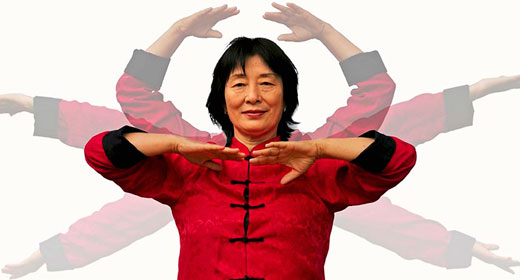by Heather Hagan: In this post, Mental Grit spoke with Heather Hagan, who is a USA triathlon coach and a certified strength and conditioning coach, on how meditation for athletes improves sports performance…
It sounds crazy to think that one could become a better athlete by simply sitting closing one’s eyes and doing nothing. But it is definitely possible.
Meditation is one the most powerful yet most underutilized methods to not only relieve stress, anxiety and restore health in athletes but also helps them deal with the ever-changing environment in a competition.
It is shown to have a number of benefits including psychological, neurological, physiological, health and sport outcomes (Edwards, 2012)
Energy is a key ingredient to success in sports. Food, breath, restful sleep and meditation are the four sources of energy.
The amount of energy gained from effective meditation is said to be greater than that from sleep with 20 minutes of meditation equal to 8 hours of deep sleep according to one of the thousands of studies that have shown the effectiveness of meditation.
For Phil Jackson, there is no doubt that this aspect of mental skills training works like a charm.
If you are wondering where the nickname ‘The ZenMaster’ came from for Phil Jackson, it is from meditation. Jackson, one of the all-time winning coaches in the NBA, used the Zen philosophy of mindfulness when he began coaching the Chicago Bulls and later the Los Angeles Lakers.
Regarded as one of the greatest coaches of all time, Jackson won 11 NBA championships using mindfulness meditation with the help of renowned sport psychology consultant George Mumford to build mental strength in both teams.
Using meditation for athletes as part of mental preparation and training for her triathletes works for coach Heather Hagan as well.
“It has helped so much. I have had athletes say that the only reason they were able to complete races (triathlon) was because they knew that the mental preparation I had them do built their self-esteem and confidence up for that day.”
Combining three individual sports (swimming, cycling, running) into a single event, triathlon has been called the ultimate individual athletic endeavor.
Triathlon’s ultimate race is not dubbed Ironman for no reason – physically hard, but the mental aspect can be even harder. A mind that is not under control is a mind that makes mistakes—mistakes that could be the sole difference between winning and losing, which can have a very small margin for error, but also just finishing a race in the case of Ironman.
Meditation for athletes could offer that small margin needed to make you a better athlete and even a happier human being.
“Most triathletes are type A persons (more outgoing, impatient and/or aggressive) I found we could use it as a way to have them sit in a room away from the noise and have that time of reflection. Meditation is some of these athletes only form of decompression – private time away from their kids or business.”
It’s established that sports meditation can significantly aid athletic performance but let’s look at exactly how.
10 ways meditation for athletes can help optimize performance:
Stress reduction
Meditation for Athletes
Stress reduction is vital for optimal athletic performance. A study (Psychological Science) published in the Journal of Health Psychology showed that the results of meditation are associated with reduced stress levels in addition to decreased levels of the stress hormone cortisol.
Being relaxed and centered improves focus and concentration and also increases the ability to remain calm under pressure. By consistently practicing meditation, your body will learn how to relax in stressful situations, building self-confidence and ultimately achieving a more positive mindset.
Helps focus
When you can effectively train yourself to control your attention and place it on task-relevant items, you will find that your capacity to focus will increase, in game engagement will be higher, and you will be much more effective at what you do.
Helps to stabilize emotions
One study (University of Utah) showed that people with more mindful traits are better able to stabilize their emotions and have better control over their moods. This is essentially the basis of resiliancy.
Reduces the mind from ruminating
Humans have the propensity to run obsessive thoughts through our minds (the monkey mind). Meditation has been shown (Chambers et al 2008) to reduce rumination, meditation will essentially help an athlete to be aware of thoughts without attachment creating the option to reset their minds and chosoe to focus on the present.
Enhances Endurance
This might be one of the most popular reasons to include meditation into your training routine. By practicing meditation that utilizes visualizations, athletic endurance can be enhanced through a decrease in perceived effort. For more on how decreased perception of effort effects endurance,
check out a great book called: How bad do you want it? By Matt Fitzgerald.
Athletes who visualize accomplishing specific objectives/goals, combined with regular breathing exercises can train the body to work harder and for longer periods of time in training and competition.
Improves sleep patterns and speeding recovery time
Athletes who practice meditation consistently can help their body to recover quicker from training, racing, and even injury. While physical training is good, it also places high levels of stress on the body, including muscle fiber tears. Meditation can actually reduce the recovery time from many common sports injuries.
In addition, it boosts the immune system, preventing illnesses that could hinder training and/or performance. Researchers from the University of Wisconsin School of Medicine and Health found that those who practice meditation experience fewer acute respiratory infections, as well as a shortened duration and severity of symptoms from the common cold.
Helps deal with fear
Fears can hijack our minds. Meditation has been shown (Frontiers) to help calm the amygdala – the fear center of the brain, even when not meditating. The simple act of having a daily practice of meditation enables our minds to effectively deal with the fears of life.
Improves sense of identity, self, and the body
Meditation in sport can help athletes conquer those common “blind spots” that makes performance challenges seem more difficult than they actually are. These blind spots negatively impact performance and meditation helps you recognize your blind spots.
Meditation in sport can greatly improve the mind-body connection, allowing you to discover your optimal zone of performance.
Helps cope with pain
Professional athletes are always dealing with some sort of pain. High endurance sports do a number to the body. Meditation has been shown (Fadel Zeidan, PhD – lead author of study) to help people cope with pain.
Strengthens the immune system
Meditation has been shown (Perspectives on Psychological Science) to strengthen our immune system.









































